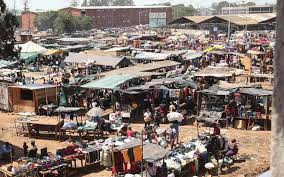
IN the vibrant streets of Harare, Bulawayo and Mutare the hustle and bustle of vendors paints a vivid picture of resilience against the backdrop of economic adversity.
For many Zimbabweans, vendors are not just traders; they embody the spirit of survival, creating livelihoods in a challenging environment.
As the proposed nationwide ban on street and night-vending looms, the very existence of vending hangs in the balance, sparking fierce debate about the future of informal trade in the country.
On a typical morning, as the sun rises over Harare, vendors like Tendai, a 32-year-old mother of two, set up their stalls filled with fresh produce and a few metres away, another sets up a stall for second-hand clothes.
“This is how I feed my children,” she says, her hands skilfully arranging vegetables. “If they take this away, I don’t know what will happen to us.”
Tendai’s plight is shared by countless others who have turned to vending as a lifeline in a nation grappling with skyrocketing unemployment and economic instability.
In a recent proclamation, Local Government minister Daniel Garwe announced plans to ban street and night-time vending, citing the need for urban order and aesthetics.
However, voices from the community and streets have risen in defiance, arguing that the ban will exacerbate the struggles of those who rely on the informal jobs for survival.
- Revisiting Majaivana’s last show… ‘We made huge losses’
- Edutainment mix: The nexus of music and cultural identity
- ChiTown acting mayor blocks election
- Promoter Mdu 3D defends foreigners 30 minute set
Keep Reading
“Our cities must be clean and organised,” Garwe stated. But this perspective overlooks the harsh realities faced by vendors who have long struggled for recognition and space in the formal economy.
Social analyst Nyasha Chikwenje warns that banning vending will only push these activities underground.
“Many vendors lack access to formal employment due to systemic policy barriers,” she explained during an interview, adding that for many families, vending was often the only viable option.
Her sentiments resonate with vendors who express their desperation and determination to continue working despite the looming threat.
In Bulawayo, a vendor named Mercy shares her experience: “I have been selling clothes for over five years. This is my only source of income. Without it, we will starve.”
Mercy’s story reflects a broader narrative of struggle and resilience that characterises the informal economy across Zimbabwe.
Legal experts echo these concerns, emphasising the potential infringement on the rights of individuals to earn a livelihood.
Advocate Tinashe Moyo states: “The government must consider the legal ramifications of displacing vendors who have nowhere else to go.”
He argues that a ban without a valid legal framework is not only unjust but also ineffective.
Health experts also weighed in on the potential fallout from the proposed ban.
Farai Ndoro, a public health specialist, warned that pushing vendors off the streets could lead to increased food insecurity.
“Many vendors provide affordable food options for low-income families,” he explained during a recent interview.
“If they are pushed away, we may see a rise in malnutrition and food-related health issues.”
Environmentalist Linda Mubaiwa offers a constructive alternative: “Instead of an outright ban, the government can consider enhancing designated vending zones or specific times for vending.
“This will allow vendors to operate legally while contributing to the economy without compromising public order,” she stated.
Such solutions can bridge the gap between maintaining urban aesthetics and supporting local livelihoods.
As the community navigates this uncertain terrain, organisations like the Zimbabwe Chamber of Informal Economy Associations (ZCIEA) are rallying to advocate for vendors’ rights.
ZCIEA spokesperson Solomon Chikoko asserts, “We are not criminals; we are entrepreneurs trying to make a living. Our voices must be heard in this decision-making process.”
The Combined Harare Residents Association (CHRA) echoes this sentiment, condemning the move as autocratic, particularly in an economy reliant on the informal sector.
It further emphasised that vendors cannot be punished for utilising survival strategies in a difficult economy.
"The City of Harare has to run its operations within the city in accordance with section 264 of the Constitution; the procedure should be done in accordance with the Constitution,” the CHRA statement read.
“The informal sector has for years been complementing the formal sector as there has been an emergence of formal businesses operating 24/7 in the CBD over the years”, the statement asserts.
Social experts observe that the tug-of-war between government priorities and the realities of everyday life underscores the need for dialogue and understanding.
As the sun sets on another day in Zimbabwe, the streets remain alive with the energy of vendors like Tendai, who continue to hope for a future where they can work without fear.
“Everyday is a struggle, but we find a way,” she reflects. This resilience is a testament to the indomitable spirit of Zimbabweans facing adversity.
The impending decision on the proposed ban will not only impact the livelihoods of thousands but will also serve as a litmus test for government’s commitment to inclusivity and economic justice.
As voices from various sectors converge, vendors, government officials and experts alike, the urgent plea for dialogue becomes clearer.
The fate of Zimbabwe's vendors hangs in the balance and the outcome could define the future of informal trade in the country. Will the government listen to the voices of its citizens, or will the streets echo with the silence of displaced dreams?
As the streets in cities and towns continue to grapple with uncertainty, one thing is clear: the struggle for survival is far from over.
The streets of Zimbabwe’s cities and towns remain a battleground for the rights and aspirations of its people, seriously reflecting the persistent struggle for space and participation in a very sluggish and inactive formal economy.










